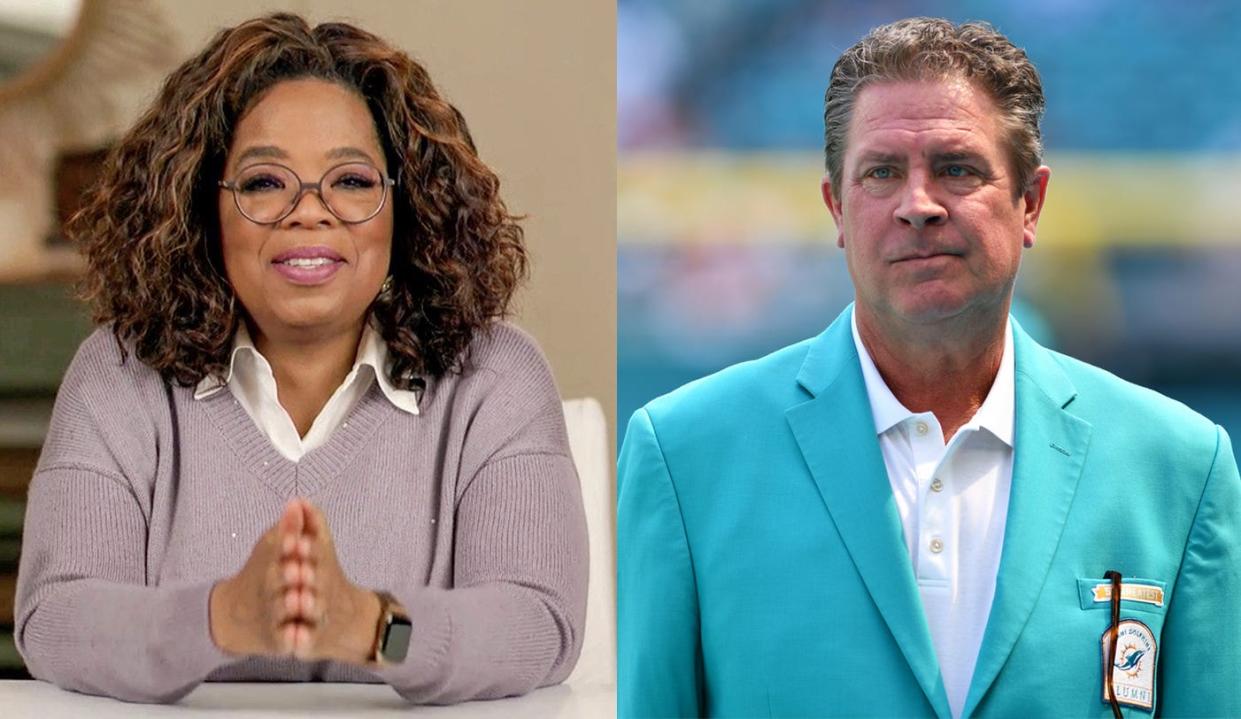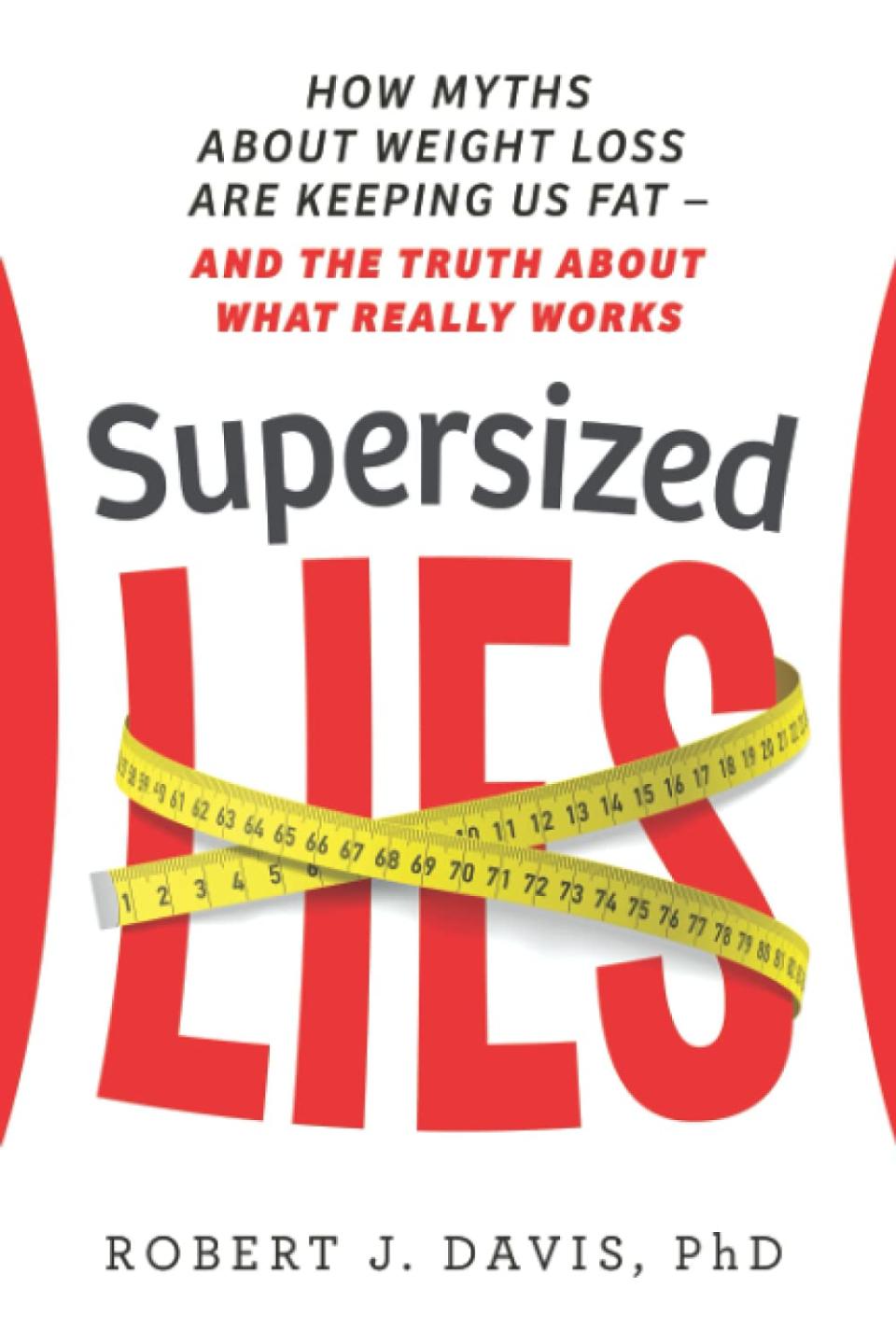Boomer Health: New book gets to the bottom of long-held weight-loss myths

This is the time of year when weight-loss ads are ubiquitous.
Oh, look — there’s former Miami Dolphins quarterback Dan Marino shilling for a popular meal plan.
And hey, what to do you know — there’s Oprah Winfrey sincerely telling you about how another well-known eating plan has transformed her life.
And let’s not forget the nonstop offers of great deals on new gym memberships.
Indeed, according to CNBC, the weight-loss industry as a whole has grown into a $70-billion-plus annual business behemoth.
But with such growth has also come myriad misinformation about what is effective — and what isn’t.
In his new book — “Supersized Lies: How Myths about Weight Loss are Keeping Us Fat — And the Truth about What Really Works” (Everwell Books/$16.99/available on Amazon) — veteran health author Robert J. Davis (aka “The Healthy Skeptic”) explores the science behind long-held popular health claims.

With chapter titles like “The Calorie Fallacy,” “Exercise Illusions,” “Superfood Foolery” and “Timing Isn’t Everything,” Davis breaks down the myriad components that affect how our bodies process and react to both food and exercise.
In addition, each chapter contains several “myth or truth?” suppositions about food, dieting, exercise, weight loss and more.
Here are some of the “myth or truth?” breakdowns I found especially interesting:
Does gluten promote weight gain?
Avoiding gluten has become popular in the diet and nutrition industry. Gluten is a protein found in rye, barley and wheat and can be harmful to those with celiac disease. But for those free of celiac disease, there’s no science behind avoiding the substance.
“While some individuals without celiac disease report symptoms due to gluten (a condition known as gluten sensitivity), it’s unproven that weight gain is one of them,” writes Davis. “Nor is there proof that gluten-free diets lead to weight loss.”
Should you avoid carbs that have a high glycemic index?
The glycemic index (GI) — a number ranging from 0 to 100 — “ranks” carbohydrates based on how much they raise one’s blood sugar. Potatoes and rice are considered high-glycemic foods while nuts and beans are considered low-glycemic ones. Those who advocate avoiding high-glycemic foods do so because they believe such foods promote weight gain.
However, Davis writes “studies overall have failed to show that low-GI diets are superior for weight loss” and that “the concept of GI itself is flawed because it assumes that foods are consumed in isolation on an empty stomach.”
Can fruit be fattening?
We’ve been told since childhood to eat our fruits and vegetables — but what effect does the fructose and glucose in fruit have on our waistlines?
Turns out most of the produce aisle is pretty safe for your weight-loss plan — so feel free to grab that apple.
“Overall, research show that fruit does not contribute to weight gain and is even linked to weight loss,” writes Davis. “And low-sugar fruits aren’t necessarily better for your waistline than high-sugar ones. In three large studies, apples and pears, whose sugar content is on the high side, were more strongly associated with weight loss than lower-sugar fruits like grapefruit.”
That said, Davis also recommended avoiding fruit juice because it’s both full of sugar and bereft of beneficial fiber, and because drinking fruit juice has been linked with weight gain.
Do ‘negative’ calories exist?
Foods such as cucumbers, lettuce and celery have gained the reputation among dieters as requiring more energy expenditure to digest than they contain — thus being foods that actually burn calories to consume.
So what’s the old saying about when something sounds too good to be true?
That’s the case here — even in foods with miniscule calorie counts like celery and cucumbers.
However, there is one substance that, technically, will cause your body to burn more energy than it takes in calorically.
“Ice cold water ... has no calories, and we burn a few calories to warm it up to body temperature,” writes Davis. “But the number is likely too small to have an impact on our weight.”
Does 3,500 calories really equal 1 pound of fat?
The idea that creating a 3,500-calorie deficit will equal a 1-pound weight loss dates back to research of overweight women in the 1950s — but Davis says this “simplistic formula” is “misleading … [because it] fails to take individual differences into account or to consider how the body adapts to weight loss.”
He cites studies of identical twins that suggest how people gain and lose weight has such a vast array of genetic components that it’s virtually impossible to uniformly predict how caloric increases and decreases will affect specific people over time.
Do medications cause weight gain?
The unfortunate truth is that some medications — including antidepressants, beta blockers, mood stabilizers and steroidal hormones, among others — are associated with weight gain.
As Davis explains, “Certain medicines … can slow metabolism, cause fluid retention, increase fat storage, or stimulate appetite, all of which may lead to weight gain.”
But these effects don’t necessarily occur in all people so if you’re on any of these — or other weight-gain-associated drugs such as antihistamines, birth control pills and/or antibiotics — consult with your own physician about their potential side effects.
Do high-sweat workouts burn more calories?
While many of us correlate sweating with working out hard and burning calories, the act of sweating alone has more to do with other factors — including gender, age, genetics, air temperature, humidity, etc. — than it does with exercise intensity. Sure, you might drop a few pounds of water weight if you sweat a lot, but once you rehydrate, the lost weight will return. In addition, a low- or non-sweat workout does not necessarily mean you’re not working out hard enough.
According to Davis, a good rule of thumb for gauging workout intensity “is the so-called talk test. If you can talk and sing during your activity without becoming breathless, the intensity level is low. If you can talk but not sing, the intensity is moderate. And if you can barely get out any words, you’re doing vigorous exercise — and burning more calories.”
Does exercising first thing in the morning on an empty stomach promote greater weight loss?
This is one I’ve long done — not because of the supposed weight-loss potential but rather because I have no appetite first thing in the morning.
That said, many competitive bodybuilders swear by “fasted cardio” when they’re trying to cut weight and fat prior to a contest. The theory they’re subscribing to is that if the body is depleted of carbs prior to exercise, it will turn to stored fat for energy.
This strategy works — sort of.
As Davis explains of the numerous studies done on this topic, “there’s some evidence that fasted cardio may boost fat burning, but only fleetingly. Over the course of days or weeks, which is what counts, fasted cardio doesn’t appear to promote loss of either fat or weight in general.”
Thus, the decision whether or not to exercise on an empty stomach or after a light breakfast for energy should be made based on your personal preference and what enables you to perform optimally — not on your weight-loss and fat-burning goals.
This article originally appeared on Palm Beach Post: Boomer Health: Weight loss: What's true and what's false

